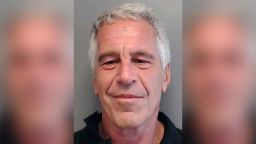The executors managing the estate of Jeffrey Epstein have hired prominent mediators to figure out how to compensate his alleged victims of sexual abuse through a claims resolution program.
Attorneys for some of Epstein’s alleged victims have mixed reactions to plans to establish the compensation program, with some saying it’s a positive step for their clients and others expressing concern it could pressure their clients into dropping their cases against the estate.
The estate lawyers filed Thursday for approval from the Superior Court of the US Virgin Islands, where Epstein’s will is in probate, to establish a “claims resolution program” that alleged victims can decide to join. Bennet Moskowitz, an attorney for the estate executors representing the executors in active litigation, said the program would be “a voluntary, confidential, non-adversarial alternative to this litigation,” according to court documents.
CNN did not hear back from Moskowitz for comment.
Jordana Feldman, known for her work as the former deputy special master of the September 11th Victim Compensation Fund, is the proposed administrator for the program, according to court documents. Feldman would work with two other attorneys experienced with setting up complex claims funds for abuse victims.
Kenneth Feinberg and Camille Biros, who are still overseeing a claims fund for sexual abuse victims in 23 dioceses of the Catholic Church, would consult with Feldman to set up the program details, Biros told CNN. The administrators “fully intend to get input from the (plaintiffs’) lawyers,” Biros said.
“How damaging something like that can be to somebody, that harm stays with them for the rest of their lives – we get to understand that. It’s not about the money. It’s the recognition and the acknowledging that they were harmed in this way,” Biros said in reference to victims of abuse she’s worked with in past mediation situations.
Epstein had pleaded not guilty to charges by New York federal prosecutors after an indictment accused him of running a sex trafficking ring of underage girls, some as young as 14. He was set to go to trial next year.
The multimillionaire financier was found dead in his cell at the Metropolitan Correctional Center in August, where the 66-year-old was awaiting trial. New York City’s chief medical examiner said the cause of death was suicide by hanging.
Federal prosecutors alleged Epstein used employees and associates to lure the girls to his residences. He then paid some of his victims to recruit other girls for him to abuse, prosecutors said.
Epstein faced similar accusations in Florida in 2007, but signed a plea deal that year with Miami prosecutors allowing him to avoid federal charges and plead guilty to lesser state prostitution charges.
There are at least 11 active lawsuits against the Epstein estate, but past indictments against Epstein referenced dozens of alleged victims who could also become stakeholders in this compensation fund.
Attorneys for the alleged victims who’ve filed lawsuits against Epstein’s estate are mixed in their openness to the non-litigation alternative.
Bradley Edwards, who represents multiple alleged victims, says that if the claims fund includes all of the estate assets, “it’s a step in the right direction.”
Epstein’s assets are valued at about $577 million. Among the assets are more than $56 million in cash and another $14 million in fixed income investments.
“If the estate is placing all estate assets into the claims program for victims, then it is a positive step. In the meantime, we intend to get the filed cases to trial quickly. Either way, justice for our clients, without delay, is our goal,” Edwards told CNN.
David Brodie, another attorney representing an alleged victim against the estate, said he’s “cautiously optimistic” about the fund, in concept.
“It would be unconscionable to pressure these victims into such a choice, essentially rolling the dice in hope that the estate will voluntarily agree to compensate these victims in the manner they deserve for the lifetime of physical and psychological damage Epstein has tragically brought upon them,” Brodie told CNN in a statement.
Lawyer Roberta Kaplan, who represents an anonymous alleged victim, said in a statement to CNN that they will keep an open mind, “but both the estate and the new administrators have a lot to prove.”
“We find it astonishing that you would go to the probate court for approval without first consulting with the lawyers for the many women Mr. Epstein abused. In fact, it feels very much like a continuation of his crimes and abuse after his death,” Kaplan said previously in an email response to Moskowitz about the compensation program, which was submitted as an exhibit in their active litigation.
Jennifer Araoz, who’s filed a lawsuit against Epstein’s estate alleging sexual assault in New York State Supreme Court, plans to continue litigating the lawsuit rather than participating in the compensation program, her lawyer said.
“Jennifer is supportive of all efforts to ensure Epstein victims are adequately compensated for their terrible victimization at the hands of Jeffrey Epstein. Each victim, however, must make an individual decision as to how to best pursue legal remedies for their injuries. Jennifer has decided that the best legal course of action for her is her court action filed in New York State court as a result of the fact that she still has a current claim under the Child’s Victims Act,” her attorney, Dan Kaiser, said in a statement to CNN.
All parties with active litigation against the Epstein estate in the Southern District of New York are scheduled to appear in front of a federal judge November 21 for a conference regarding the estate.







